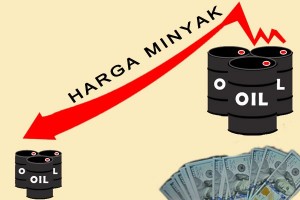30 Nov 2016

U.S. benchmark, light sweet crude oil or West Texas Intermediate (WTI) for January delivery, retreated 1.85 U.S. dollars to settle at 45.23 dollars a barrel on the New York Mercantile Exchange.
Meanwhile, the global benchmark, Brent North Sea crude for January delivery, decreased 1.86 dollars to close at 46.38 dollars a barrel on the London ICE Futures Exchange.
Media reports said Tuesday that Iran and Iraq have resisted pressure from Saudi Arabia to cut their crude production, making it harder for the Organization of the Petroleum Exporting Countries (OPEC) to reach a global output reduction deal when it meets on Wednesday.
An OPEC expert meeting in Vienna on Monday failed to bridge differences between OPEC de facto leader Saudi Arabia and the second and third-largest oil producers over the mechanism of an output cut, OPEC sources told Reuters.
"Restoration of Iran's lost share of the oil market is a national will and demand of the Iranian nation," Iran's Shana news agency quoted Iranian Oil Minister Bijan Zanganeh as saying before he is set to arrive in Vienna on Tuesday.
OPEC, which accounts for about one third of global oil output, agreed in September to limit its output to between around 32.5-33.0 million barrels per day (bpd), compared with its current output of 33.64 million bpd, to support oil prices that have halved since mid-2014.
Iran has argued that it wants to raise its output to regain market share lost while under Western sanctions, when its rival producer Saudi Arabia boosted output.
In recent weeks, Riyadh has offered to cut its own output by 0.5 million bpd, according to OPEC sources, and has suggested a cap for Iran's production of less than 4 million bpd. Tehran has sent mixed signals, including that it wanted to produce 4.2 million bpd.
Iraq has also pushed for a higher production ceiling, arguing it needs the extra revenue to help pay for its fight against Islamic State militants.
The dispute between Iraq and Saudi Arabia centers on whether Baghdad should use its own production estimates when limiting its output or rely on lower figures from OPEC experts.
Meanwhile, Russia has said it will not attend the main talks with OPEC on Wednesday in Vienna, Austria.
Some analysts including Morgan Stanley and Macquarie have said oil prices could correct sharply if OPEC fails to reach a deal, potentially falling as low as $35 a barrel, according to Xinhua. (OO.A026)
Editor: Ruslan Burhani
© Inacom. All Rights Reserved.